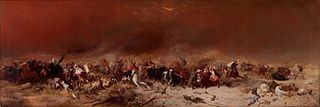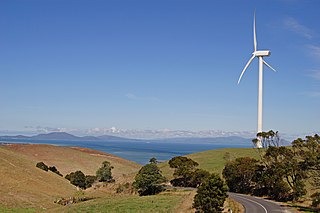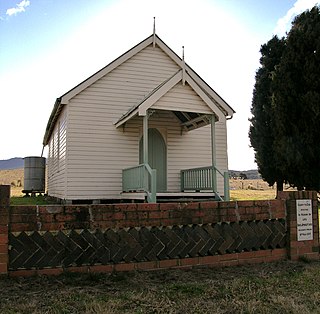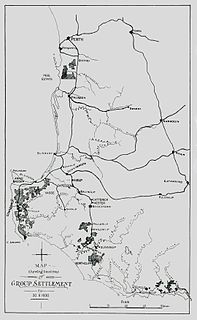Related Research Articles

A tax is a compulsory financial charge or some other type of levy imposed on a taxpayer by a governmental organization in order to fund government spending and various public expenditures, and tax compliance refers to policy actions and individual behaviour aimed at ensuring that taxpayers are paying the right amount of tax at the right time and securing the correct tax allowances and tax reliefs.

The history of Australia is the story of the land and peoples of the continent of Australia.

The Dust Bowl was a period of severe dust storms that greatly damaged the ecology and agriculture of the American and Canadian prairies during the 1930s; severe drought and a failure to apply dryland farming methods to prevent the aeolian processes caused the phenomenon. The drought came in three waves: 1934, 1936, and 1939–1940, but some regions of the High Plains experienced drought conditions for as many as eight years.

Lincoln County is a county in eastern Central Oklahoma. As of the 2010 census, the population was 34,273. Its county seat is Chandler.

The Scheyville National Park is a protected national park that is located in the northwestern suburbs of Sydney in New South Wales, in eastern Australia. The 920-hectare (2,300-acre) national park is situated approximately 40 kilometres (25 mi) northwest of the Sydney central business district, northeast of Windsor, near the settlement of Scheyville. Longneck Lagoon lies in the northern section of the park. It was added to the New South Wales State Heritage Register on 9 April 2010.

Welfare is a type of government support intended to ensure that members of a society can meet basic human needs such as food and shelter. Social security may either be synonymous with welfare, or refer specifically to social insurance programs which provide support only to those who have previously contributed, as opposed to social assistance programs which provide support on the basis of need alone. The International Labour Organization defines social security as covering support for those in old age, support for the maintenance of children, medical treatment, parental and sick leave, unemployment and disability benefits, and support for sufferers of occupational injury.
Native title is the designation given to the common law doctrine of Aboriginal title in Australia, which is the recognition by Australian law that Indigenous Australians have rights and interests to their land that derive from their traditional laws and customs. The concept recognises that in certain cases there was and is a continued beneficial legal interest in land held by Indigenous peoples which survived the acquisition of radical title to the land by the Crown at the time of sovereignty. Native title can co-exist with non-Aboriginal proprietary rights and in some cases different Aboriginal groups can exercise their native title over the same land.

Ngāi Tūhoe, often known simply as Tūhoe, is a Māori iwi of New Zealand. It takes its name from an ancestral figure, Tūhoe-pōtiki. Tūhoe is a Māori-language word meaning "steep" or "high noon". Tūhoe people also bear the sobriquet Nga Tamariki o te Kohu. Tūhoe traditional land is at Te Urewera in the eastern North Island, a steep, heavily forested area which includes Lake Waikaremoana. Tūhoe traditionally relied on the forest for their needs. The tribe had its main centres of population in the small mountain valleys of Ahikereru and Ruatāhuna, with Maungapohatu, the inner sanctum of the Urewera, as their sacred mountain. The Tūhoe country had a great reputation among the neighbouring tribes as a graveyard for invading forces.

Toora is a small farming town in Victoria, Australia whose main industry is dairy farming. It is located at the top of Corner Inlet opposite Wilsons Promontory National Park. In the 2016 census the population was 681.

Public housing in Hong Kong is a set of mass housing programmes through which the Government of Hong Kong provides affordable housing for lower-income residents. It is a major component of housing in Hong Kong, with nearly half of the population now residing in some form of public housing. The public housing policy dates to 1954, after a fire in Shek Kip Mei destroyed thousands of shanty homes and prompted the government to begin constructing homes for the poor.

Australia suffered badly during the period of the Great Depression of the 1930s. The Depression began with the Wall Street Crash of 1929 and rapidly spread worldwide. As in other nations, Australia suffered years of high unemployment, poverty, low profits, deflation, plunging incomes, and lost opportunities for economic growth and personal advancement.

The economic history of Australia traces the economic history of Australia since European settlement in 1788.

Chak, a Punjabi word, is the land revenue settlement/assessment circle marking a contiguous block of land. Chak word comes from Chakar of mean wheel in Urdu.The wheel was used for Water well. There was one water well in a village at that time and every village number allotted as per water-well wheel. Now the individual chak circles have come to be associated with the name of the village founded within the revenue circle. Chak circles are based on the British Raj era revenue collection system. To enhance the government revenue during the British Raj, new canals were built to bring the barani (rainfed) areas under cultivation by introducing the irrigation to the bangar (upland) areas of Punjab region. Block of contiguous land irrigated by the specific Rajwaha were given a unique chak number each. The migrant farmers were brought in to settle into those newly irrigated areas around the core of new villages [which started out as dhanis]. Those new villages were called by the same name as their corresponding irrigation circle chak number. Government left it to those residents to give "chaks" a proper village name later. In due time, the term "chak" became synonymous with the term "village".

A hobby farm is a smallholding or small farm that is maintained without expectation of being a primary source of income. Some are held merely to provide recreational land for horses or other use. Others are managed as working farms for secondary income, or are even run at an ongoing loss as a lifestyle choice by people with the means to do so, functioning more like a country home than a business.

Squatting is a historical Australian term that referred to someone who occupied a large tract of Crown land in order to graze livestock. Initially often having no legal rights to the land, squatters became recognised by the colonial government as owning the land by being the first European settlers in the area. Eventually, the term "squattocracy", a play on "aristocracy", came into usage to refer to squatters and the social and political power they possessed.

Soldier settlement, also known as the Soldier Settlement Scheme or Soldiers Settlement Scheme, administered by the Soldier Settlement Commission, was the settlement of land throughout parts of Australia by returning discharged soldiers under schemes administered by the state governments after World War I and World War II.

Social programs in Canada include all Canadian government programs designed to give assistance to citizens outside of what the market provides. The Canadian social safety, a broad spectrum of programs, many of which are run by the provinces. Canada also has a wide range of government transfer payments to individuals, which totaled $176.6 billion in 2009—this cost only includes social programs that administer funds to individuals; programs such as medicare and public education are additional costs.

Yarrowitch is a small rural locality on the Northern Tablelands, New South Wales, Australia. It is located in the picturesque Yarrowitch River Valley on the Oxley Highway 48 kilometres east of Walcha. The settlement is included in the Walcha Shire Local Government Area in the New England region. The locality is at an elevation of about 995 metres and the area is part of Vernon County. At the 2011 census, the Yarrowitch area had a population of 167.

The Group Settlement Scheme was an assisted migration scheme which operated in Western Australia from the early 1920s. It was engineered by Premier James Mitchell and followed on from the Soldier Settlement Scheme immediately after World War I. Targeting civilians and others who were otherwise ineligible for the Soldiers' scheme, its principal purpose was to provide a labour force to open up the large tracts of potential agricultural land to ultimately reduce dependence on food imports from interstate. It was also seen by Australians as boosting the ideals of the White Australia policy by strengthening the Anglo-Australian cultural identity of Australia. High levels of post-war unemployment in Britain saw the UK Government seizing on the scheme as a way to reduce dole-queues. Over 6,000 people emigrated to Western Australia under the scheme which was funded jointly by the State, Federal and UK Governments.
The Great Depression of British Agriculture occurred during the late nineteenth century and is usually dated from 1873 to 1896. Contemporaneous with the global Long Depression, Britain's agricultural depression was caused by the dramatic fall in grain prices that followed the opening up of the American prairies to cultivation in the 1870s and the advent of cheap transportation with the rise of steamships. British agriculture did not recover from this depression until after the Second World War.
References
- ↑ W. S. Ramson (editor) The Australian National Dictionary page 65. Oxford University Press, Melbourne, 1988 ISBN 0 19 554736 5